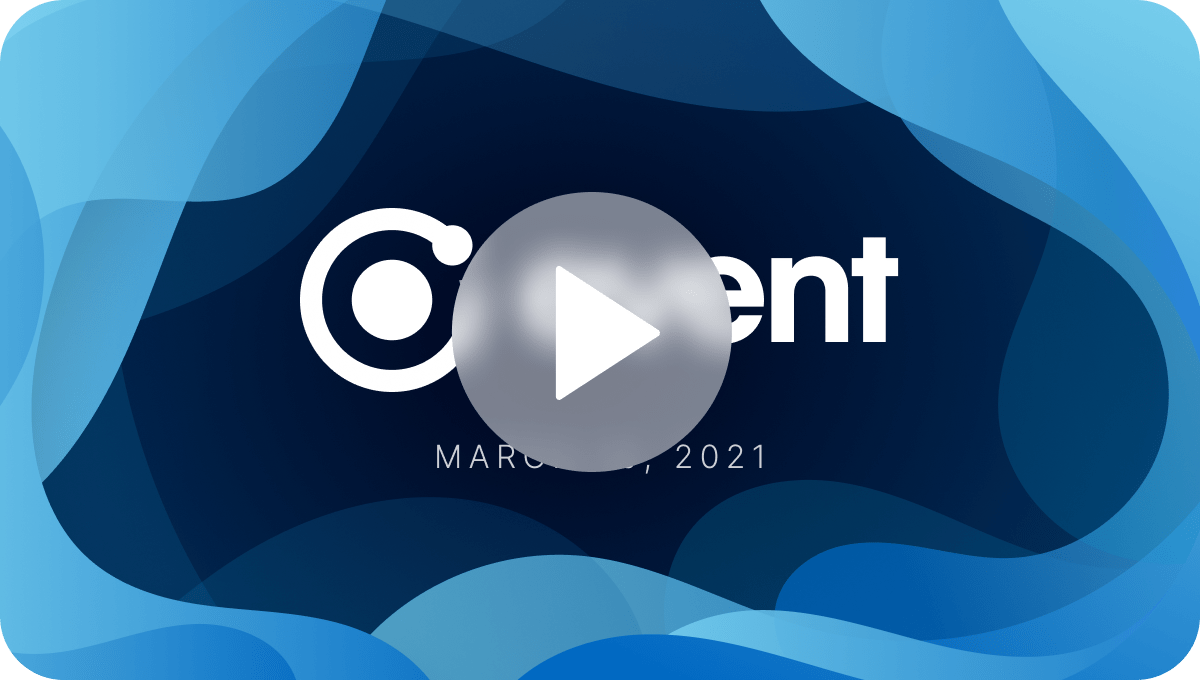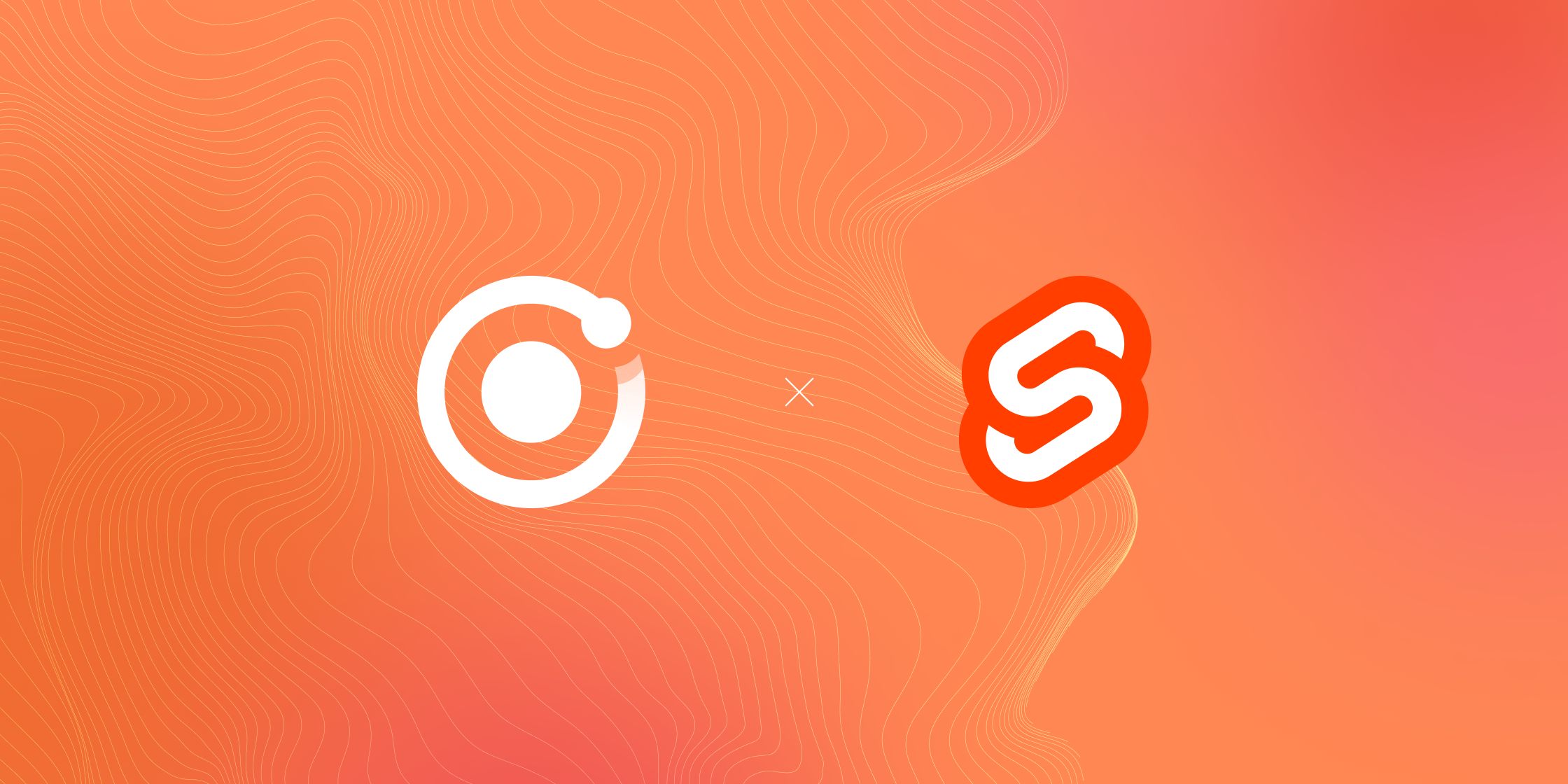Ionic Event Recap: March 2021


Today we hosted our first launch event of 2021. During the event, we heard from core Ionic team members about some exciting new updates and recent releases across our open source and commercial products.
Missed the live event? No problem. Continue reading for all the details, or watch the recording on YouTube here.
Update from Ionic HQ
During what has been an incredibly difficult year around the world, the Ionic team has stayed laser-focused on building and shipping solutions that support our vision of making cross-platform app development accessible for every person and company in the world.
It’s clear our mission is resonating. To date, Ionic has become a leading app platform powering nearly 15% of apps in the Apple and Google App Stores. And that’s only part of the story. Ionic also powers a huge percentage of internal apps supporting businesses large and small. In total, thousands of new Ionic apps are created every week, and it’s all thanks to our vibrant, world-wide community of over five million developers.
We’ve been fortunate to work with some amazing customers, who are using Ionic to build any kind of app spanning every single industry on earth. These teams are building incredibly large-scale apps with Ionic, with millions of users, billions of dollars of revenue impact and truly inspiring us each and every day.
So, I want to thank all of our amazing customers for helping guide our roadmap, helping influence our entire technology stack, and inspiring us to always do better.
On to the product announcements, starting with Capacitor.
Capacitor 3 reaches Release Candidate status
We’re thrilled to announce that Capacitor 3 has reached Release Candidate (RC) status.
Capacitor is an open source cross-platform native runtime that makes it easy to build modern web apps that run natively on iOS, Android, and the Web. In essence, Capacitor connects the web to native, enabling the best of both worlds by providing the tooling and runtime that make it possible to take any modern web app and deploy it natively to all the platforms you care about.
With the release of Capacitor, we’re unlocking a new approach to building native apps with web technology—a category we’re calling Web Native apps.
In fact, Capacitor is quickly becoming the de facto standard for web developers building for mobile. It’s installed half a million times per month and growing rapidly, with thousands of new apps kicked off every week. It was also rated #1 in satisfaction among mobile development tools on the latest State of JS survey.
With the upcoming release of Capacitor 3, we’re planting a stake in the ground: Capacitor is now the standard for web developers building mobile apps. Major updates include improved performance, enhanced developer experience, and greater community involvement.
Performance
- Various under-the-hood optimizations translate into out-of-the-box benefits for you and your app users, including reduced app bundle size and improved app launch time.
- Official plugins are now separate from Capacitor Core. Using only the features you need will ensure your app’s high performance.
- Lazily loaded web plugins. This helps keep bundle sizes down, but also ensures platform-specific code is not accidentally executed at the wrong time.
Developer Experience
- Support for Xcode 12+ and Android 11, resulting in improved performance, security, and modern development experiences.
- A new CLI command (cap run) that increases development and testing speed.
- The Capacitor configuration file is now available in TypeScript. Specify different configurations based on the development environment (such as dev, QA, and production), as well as leverage environment variables to customize the app experience.
- An updated permissions API standardizes how developers manage permissions across multiple platforms.
Community
- Capacitor Community GitHub: It hosts high-quality community plugins, all curated by the Capacitor team. If you’re building anything cool, let us know! We’d love to have you. Additionally, if there’s a plugin you’d like to see built, add a request to the Proposals repository. We’ve had a number of great plugins make it in so far, including Bluetooth Low Energy and a barcode scanner.
- Increased project transparency, featuring public milestones and project planning.
- Increased presence: Get your questions answered by the community and Capacitor team on the Ionic Forum and GitHub Discussions.
Ready to give Capacitor a try?
More developers than ever are migrating to Capacitor or joining us for their very first app. We hope you’ll check it out for your next cross-platform project. The final release of Capacitor 3 will ship in the coming weeks so in the meantime if you have an existing Capacitor 2 project, we encourage you to start upgrading to Capacitor 3 today!
Ionic Framework Delivers Accessible Experiences for Every User
Ionic Framework is an open-source UI toolkit for building performant, high-quality mobile and desktop apps using web technologies, with integrations for popular frameworks like Angular, React, and Vue.
As part of our company mission, we want to ensure that all Ionic apps deliver a great experience for every user, regardless of how they interact with their devices.
So, we’re excited to share that the majority of Ionic Framework UI components now conform to the latest web accessibility guidelines to support the visually and hearing impaired.
Significant accessibility improvements include:
- Increased support for assistive technologies such as VoiceOver, NVDA, and TalkBack in terms of reading labels, selected values, and checked/unchecked states.
- Improved keyboard navigation.
- Updated components include ion-radio, ion-checkbox, ion-select, ion-toggle, and more.
- Components work better with automated accessibility tools such as AXE that scan and identity apps with accessibility issues.
Additionally, here’s a sneak preview of new Ionic Framework enhancements coming soon:
- An all-new, redesigned datetime component.
- A new accordion component.
- Enhanced desktop support for all UI components and more accessibility enhancements coming to Ionic Framework v6.
Auth Connect Adds Improved React Support
We’re excited to share that Auth Connect, a single sign-on solution that makes it easy to integrate with popular authentication providers and custom solutions, has added new features so more developers can easily add SSO to their apps:
- Support for Proof Key for Code Exchange (PKCE) in Azure B2C workflows.
- Support for Keycloak, an open-source identity management tool.
- A new React Hooks-based API: React developers can easily add single sign-on to their apps with a new React Hooks-based API.
Other Native Layer Improvements
Identity Vault, our advanced biometrics solution for safeguarding users and data on a mobile device, will also be getting a React Hooks-based API soon, followed by Angular-specific implementations for all native solutions.
Additionally, two new Enterprise plugins are coming soon: Apple Pay and Google Pay. These plugins will enable contactless, secure purchases in stores, in apps, and on the web. Imagine your users authenticating their purchase using their fingerprint or passcode.
Sound interesting? Explore our full suite of native solutions for enterprise teams.
Appflow Adds Monorepo Project Support
Appflow, a fully-integrated mobile DevOps platform for developers and teams, has rolled out new features to deliver more power and flexibility for Appflow users, including:
- Azure DevOps Git support is now available for Scale plan customers. It joins the growing lineup of Git providers that Appflow supports including GitHub, Gitlab, GitLab Self-Managed, BitBucker, and BitBucket Server.
- Android App Bundles (AAB) support. Android App Bundles are signed binaries that organize your app’s code and resources into modules. Additional dynamic features are downloaded and installed on demand. Apps uploaded to Google Play are required to use the AAB format beginning in the 2nd half of 2021. Appflow automatically generates APK and AAB files upon every native Android app build.
- Out-of-the-box support for monorepo projects, including Simple Folders, Lerna, NX, Yarn, and more.
- Customize your app’s web build by using a dedicated Appflow build command.
- Enterprise CLI API additions. Kick-off live updates, native Android/iOS builds and more from the command line.
- Build non-Ionic Framework-based Capacitor projects with reduced or no configuration necessary.
Thank You 🙏
We’d like to give special thanks to the amazing Ionic community and our customers. We build the technology, but you are the ones who turn it into amazing apps. It’s an honor to help you build amazing products.
This product launch event was the first of many we’re aiming to run every few months. Our next event, Ioniconf, is focused on our incredible community. Featuring great talks from experts in the mobile and web ecosystem, it’s not one to miss.
See you at Ioniconf 2021! ✨


